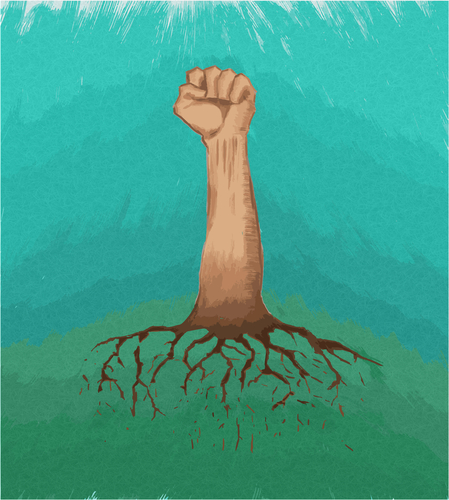Deadline: 18 September 2020
The U.S. Department of State, Bureau of Democracy, Human Rights and Labor (DRL) has announced an open competition for organizations interested in submitting applications for Fixed Amount Award (FAA) projects that support the policy objective to promote human rights, accountability, and access to information in the DPRK.
Categories
This NOFO includes two (2) categories in which applicants are able to submit applications under. Organizations must explicitly identify the category the application is being submitted. If an application may fit within more than one category, the organization must identify which category they determine is the best fit for the work proposed.
- Fostering the Free Flow of Information into, out of, and within the DPRK
- DRL seeks projects that promotes human rights and accountability through the programmatic approach of fostering the free flow of information into, out of and within the DPRK. Illustrative program activities include:
- Producing and transmitting radio broadcasts into North Korea, including managing the transmissions of radio broadcasts into North Korea on behalf of existing defector-led or Seoul-based organizations producing radio programs for North Korean audiences;
- Producing content and/or acquiring existing content of interest to North Korean audiences;
- Exploring new mechanisms or expanding existing mechanisms for sharing or consuming information and content;
- Raising awareness of legal rights under existing DPRK domestic laws and its international human rights obligations;
- Raising awareness of international best-practices and norms; and
- Promoting fundamental freedoms, including freedoms of expression, movement, association, and peaceful assembly.
- DRL seeks projects that promotes human rights and accountability through the programmatic approach of fostering the free flow of information into, out of and within the DPRK. Illustrative program activities include:
Organizations may propose activities not specifically identified above that align with the approach of fostering the free flow of information to promote human rights.
- Documentation and Advocacy
- DRL seeks projects that promotes human rights and accountability through the programmatic approach of increasing the amount of objective, credible information available about human rights in the DPRK, raising international awareness about human rights conditions, and engaging international actors to adopt approaches or actions that facilitate improvements in human rights conditions and/or lead to increased accountability for human rights violations and abuses. Illustrative program activities include:
- Establishing and/or maintaining a public online database of prisons and gulags in the DPRK, including a list of political prisoners;
- Documenting cases of human rights violations and abuses involving DPRK citizens, including cases of forced repatriations or other human rights violations or abuses of North Korean people outside of the DPRK;
- Publishing reports that meaningfully contribute to, but do not duplicate or repackage, public information on DPRK human rights conditions;
- Increasing information available on perpetrators of human rights violations or abuses;
- Amplifying the documentation work of the UN Commission of Inquiry on the situation in the DPRK;
- Submitting reports or conducting advocacy campaigns at international or other relevant forums; and,
- Expanding global partnerships to mobilize increased support in other regions and countries for human rights in North Korea.
- DRL seeks projects that promotes human rights and accountability through the programmatic approach of increasing the amount of objective, credible information available about human rights in the DPRK, raising international awareness about human rights conditions, and engaging international actors to adopt approaches or actions that facilitate improvements in human rights conditions and/or lead to increased accountability for human rights violations and abuses. Illustrative program activities include:
- Organizations may propose activities not specifically identified above that align with the approach of increasing the amount of objective, credible information about human rights in the DPRK, raising international awareness, and engaging international actors.
Where appropriate, competitive proposals may include:
- Opportunities for beneficiaries to apply their new knowledge and skills in practical efforts.
- Solicitation of feedback and suggestions from beneficiaries when developing activities in order to strengthen the sustainability of programs and participant ownership of project outcomes.
- Input from participants on sustainability plans and systematic review of the plans throughout the life of the project with adjustments made as necessary.
- Inclusion of vulnerable populations.
- Joint identification and definition of key concepts with relevant stakeholders and stakeholder input into project activities.
- Systematic follow up with beneficiaries at specific intervals (3 months, 6 months, etc.) after the completion of activities to track how beneficiaries are retaining new knowledge as well as applying their new skills.
Activities that are not typically considered competitive include, but are not limited to:
- The provision of large amounts of humanitarian assistance;
- Purely academic exchanges;
- Off-shore activities that are not clearly linked to in-country initiatives and impact or are not necessary for security concerns;
- Theoretical explorations of human rights or democracy issues;
- Micro-loans or similar small business development initiatives.
Funding Information
- Award Ceiling: $ 150,000;
- Award Floor: $ 50,000;
- Period of Performance: 3 – 12 months.
Eligibility Criteria
- DRL welcomes applications from U.S.-based and foreign-based non-profit organizations/non-government organizations (NGO) and public international organizations; private, public, or state institutions of higher education; and for-profit organizations or businesses. DRL’s preference is to work with non-profit entities; however, there may be some occasions when a for-profit entity is best suited.
- Applications submitted by for-profit entities may be subject to additional review following the panel selection process. Additionally, the Department of State prohibits profit to for-profit or commercial organizations under its assistance awards. Profit is defined as any amount in excess of allowable direct and indirect costs.
For more information, visit https://www.grants.gov/web/grants/view-opportunity.html?oppId=325920
